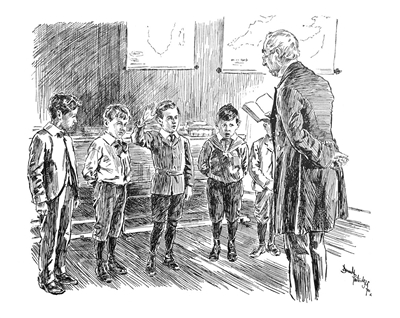Compulsory Subjects - and those no longer studied

The national curriculum includes a wide range of subjects, with English, maths, science, and physical education being amongst the subjects compulsory at key stage 3. At key stage 4, where pupils work to attain national qualifications (typically GCSE`s), the national curriculum is split into `core` and `foundation` subjects.
Core subjects:
- English
- Maths
- Science
Foundation Subjects:
- Computing
- Citizenship
- Physical education
Along with the core and foundation subjects, schools are mandated to offer at lest a single subject from the following categories:
- Design and Technology
- Modern foreign languages
- Humanities
- Arts
Schools are also required at key stage 4 to provide lessons in sex education and religion, though parents can choose to withdraw their children from these subjects. Pupils will still be required to study the biological features of animal growth and reproduction, since these constitute an essential component of the national curriculum for science.
The national curriculum was introduced in 1988 as part of the education reform act. Before it was brought into effect most schools still taught the standard range of subjects, but in previous decades there were a number of classes taught that might seem obscure and anachronistic today.
Typing
Must children today are extremely proficient at using keyboards, most likely having had access to computers and tablets from an early age. A few decades ago things were very different, as the only keyboard in the home was likely that on a typewriter, hardly an object of great interest to the average child. The ability to type quickly and accurately was certainly a lucrative skill, as almost every business would require a secretary. To develop their typing skills children would be taught to rest their fingers on the `home keys`, a series of letters along the middle of the keyboard - `A S D F` and `J S L `. According to this didactic method the little finger of the left hand rests on the A, while the ring finger is on the S, the middle finger on the D, and the index finger lies on the F. This placement is optimal for rapid typing, as every letter is just a short finger distance away. Children would be encouraged to learn how to `touch type,` that is to write without looking at their hands.
Home Economics
Frequently called `home science` or `domestic science,` the subject was taught, in one form or another, for many decades in British schools. The core of the subject, in its traditional form, dealt with the running of a household, and included classes on cookery, cleaning, and childcare. For the most part the subject was only offered to female students, as it was assumed, given the mores of the day, that they would be the ones running the home and raising the children. The subject broadened in scope over the years, dealing with families, communities, and the environment. After the second world war many universities began dropping Home Economics in order to increase funding for their science departments, and this led to the decline of the subject in schools. Most of those still offering the subject by the 1980`s had re named it `Food and Nutrition,` with classes covering the nutritional and economical aspects of consumption.
Latin
Up until the 1950`s latin was taught as a mandatory subject in approximately 25% of all schools. Proficiency in latin was seen as a sign of being cultured, and in touch with the classical age - but it had real practical uses too, as anyone wishing to study law or medicine at university would need to be well versed in the language. Knowledge of latin is extremely helpful if you wish to learn one of the romance languages: Spanish, Portuguese, French, Italian and Romanian. These languages have a common ancestor in latin, and despite their grammatical inflection system and case structures having been simplified, knowledge of latin will help you pick up these languages fairly quickly.
In the 1960`s most universities began to drop latin as a requirement to study law or medicine, and over the next few decades the majority of schools abandoned it as a mandatory subject. It can still be studied as a GCSE and A-Level in some schools, but is usually only offered to students who show a marked predilection and aptitude for foreign languages.

 Add a Comment
Add a Comment